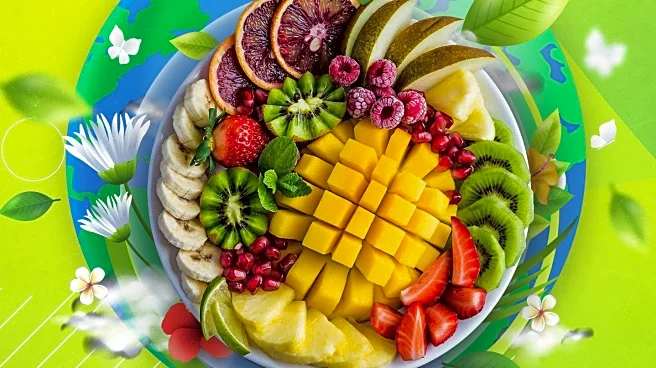What's Happening?
Nutrition apps are often marketed as tools to help individuals manage their diets by tracking food intake and identifying potential sensitivities. However, many of these apps can inadvertently lead to negative
experiences, such as guilt or rigid thinking about food, according to nutrition experts. Desiree Nielsen, a registered dietitian, points out that many apps rely on flawed assumptions, such as calorie counting, which can lead to unhealthy eating behaviors. Amber Young, another registered dietitian, notes that calorie counting can cause users to ignore their body's hunger signals, potentially leading to disordered eating patterns. Despite these concerns, some apps are praised for their supportive approach. The Monash FODMAP Diet and FODMAP Friendly apps are highlighted for their focus on helping users with specific digestive concerns, such as IBS, by providing information on fermentable carbohydrates that can cause digestive distress.
Why It's Important?
The discussion around nutrition apps is significant as it highlights the potential psychological impact of digital tools on eating habits. While these apps aim to assist users in achieving health goals, they can also contribute to unhealthy relationships with food if not designed thoughtfully. The emphasis on calorie counting, for instance, can overshadow the importance of listening to one's body and understanding nutritional needs beyond numbers. This issue is particularly relevant in a society increasingly reliant on technology for health management. The promotion of apps that encourage a more intuitive and less judgmental approach to eating could lead to healthier outcomes for users, reducing the risk of eating disorders and promoting overall well-being.
What's Next?
As awareness grows about the potential downsides of certain nutrition apps, there may be a shift towards developing tools that prioritize user well-being over strict dietary tracking. This could involve creating apps that focus on educating users about balanced nutrition and fostering a positive relationship with food. Additionally, collaboration between app developers and healthcare professionals, such as registered dietitians, could ensure that these tools provide accurate and supportive guidance. Users may also become more discerning in their app choices, seeking out those that align with a holistic approach to health.
Beyond the Headlines
The conversation around nutrition apps also touches on broader themes of mental health and the role of technology in personal wellness. As digital tools become more integrated into daily life, there is a growing need to consider their psychological effects. This includes understanding how they can both support and hinder mental health, particularly in areas like body image and self-esteem. The development of more empathetic and user-friendly apps could contribute to a cultural shift towards more mindful and self-compassionate health practices.










